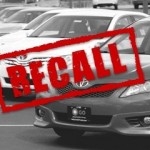 When a company suffers the indignity of having to recall a product due to some fault or other, it’s perhaps natural to imagine this being somewhat advantageous to their rivals.
When a company suffers the indignity of having to recall a product due to some fault or other, it’s perhaps natural to imagine this being somewhat advantageous to their rivals.
Alas, a recent study from the University of Washington suggests that rival firms are damaged just as much as the firm doing the recall themselves.
The widespread damage of product recalls
The research, from the University of Washington, looks specifically at the way social media can spread the damage of product recalls far beyond the ‘host’ company.
The study focused on the automotive industry and explored the negative content posted on social media during and after a product recall. Perhaps not surprisingly this chatter was reflected in financial damage to the company involved, both in terms of a fall in sales and market capitalization.
They found however, that the damage isn’t limited to the guilty firm. They found that innocent firms were found almost guilty by association, with a negative halo effect impacting them too.
“Bad news travels fast on social media,” Borah said. “Our study demonstrates that a recall event increases negative chatter that can have damaging effects on the sales and stock market performance of rivals.”
The scale of the problem
It’s a finding that should worry the industry, as last year saw 64 million vehicles recalled in the US alone. As you can imagine, these recalls prompted a wave of discussion online, whether on blogs, discussion forums or social networks.
The research focused on four brands: Toyota, Nissan, Honda and Chrysler, with around 1,000 websites monitored over an eighteen month period. The content posted on these sites during recall announcement was run through a range of data mining and sentiment analysis, with a predictable spike emerging after a recall.
It might be expected that the negativity quickly spread to other brands from the same company, with for instance, a recall of the Toyota Corolla inciting fears about Prius or Tacoma brands also.
What was more surprising however, was how the likes of Honda and Chrysler also suffered from a Toyota recall, despite neither brand recalling vehicles at that time.
The commercial impact of the perverse halo
This so called ‘perverse halo’ effect had profound commercial implications. The researchers found that over $7 million was taken from the market capitalization of innocent firms in the six days following a recall from a rival. Vehicle sales were similarly effected.
What’s more, the size of the impact was found to increase when the recall was done by a market leader. So, for instance, if a Toyota Corolla was recalled, it had a bigger impact on the whole market than if a Nissan Sentra was recalled.
The role of nationality
Interestingly however, there were also national variances witnessed. For instance, a recall from Toyota would have a bigger impact on fellow Japanese brands such as Nissan and Honda, but much less on American brands such as Chrysler.
In fact, a recall from one of the Japanese brands was actually shown to benefit the sales and market cap of Chrysler.
“A brand like Chrysler should be cashing in when a competitor from another country has a recall event,” the authors say.
With many firms adopting the ‘minimum viable product’ approach and releasing to market things that are not quite 100 percent, this study is a reminder of the damaging impact having to recall those products has on the fortunes of both the culprit and the wider industry.
It is also a telling reminder of the importance of good crisis management during such events, and the large role social media can play in spreading the bad news far and wide.
“During crisis situations, it is imperative for firms to communicate with consumers in the right way,” the authors suggest. “They can relay information about the recall, post a comprehensive set of FAQs to allay concerns, ensure that searches for information are directed to a dedicated recall microsite, and know the hashtags and keywords being used to discuss recalls so they can engage in two-sided dialogue to address specific concerns.”
Makes perfect sense, in an irrational kind of way.
Makes perfect sense, in an irrational kind of way.